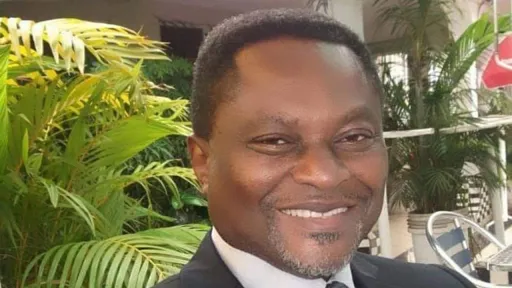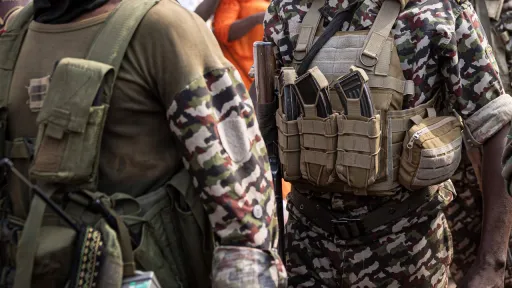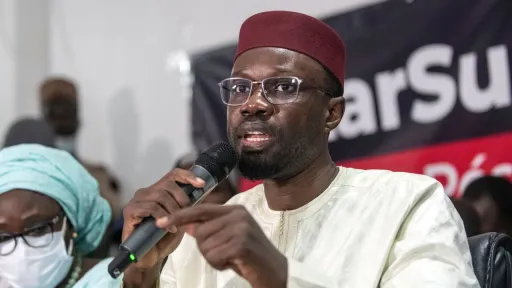By Pauline Odhiambo
What do you do when the person in the mirror never looks like the defined image of beauty and desirability?
Zizipho Soldat, a South African content creator living with congenital disability, confronts this question every single day.
Zizipho has phocomelia, a condition where a person is born with malformed or missing limbs. In her case, her left is arm is not fully formed, while her left leg is significantly shorter than her right.
But this hasn’t stopped Zizipho from becoming a model and kick-starting her career on social media, redefining the limiting standards of the global fashion and beauty industry.
Zizipho is grateful that three modelling agencies have signed her up, but the road to self-acceptance has been a painful one.
As a little girl growing up with a disability, she struggled to understand why people looked at her differently. The discrimination that followed made it worse.
''Physically, I could see that I didn't look like other girls, although that never bothered me until the bullying started," she tells TRT Afrika.
"I plunged into depression at a young age, thanks to the limitations thrust on me by people who would say that since I look like this, I can't do certain things."
By the time she was in grade 12, Zizipho was taking medication for depression and seeing a therapist on a regular basis.
She found solace in writing about her feelings in a journal, sharpening her communication skills in the process. But the dark thoughts wouldn't leave her.
“I was suicidal. I felt like I couldn't cope. At the back of my mind, there was always this thought that once I get to a certain age, and I still feel like this, I would end my life," she recounts.
New beginning
Watching international models like Naomi Campbell walking the ramp would lift Zizipho's spirits, and she began to fantasise about becoming a model.
"In grade 12, I wrote a letter to a magazine, saying I wanted to model. My friends found it, and they laughed. They asked, ‘How do you want to be a model? Look at you!'"
The snide remarks may have made Zizipho bitter but didn't dent her determination to prove the naysayers wrong. “I asked God, ‘How can you create someone so beautiful with this mind and a great personality, but the body is different?'"
Zizipho then set about taking photos of herself and posting them on her social media account. She then sought out a modelling agency for professional photos, only to end up getting conned by an agent.
“I saved up for a portfolio and paid him 600 rand, which is like US $90, but he ran away with my money. He was a manipulator, too. He said that I would have to send him my nude photos if I wanted to be a model. At 17, I knew not to do that."
The now 28-year-old says the episode left her even more depressed than she had been, and alienated by the cultural misconceptions about her condition.
“As you grow up, you hear things like 'it's a bad omen or punishment for the sins of your parents or ancestors'. That’s the mentality I dealt with until I was grown enough to do my own research on phocomelia."
Not alone
According to the United Nations, more than 80 million people in Africa are disabled, including those with mental health conditions, birth defects, and other physical impairments.
Zizipho says some of photos she posted on social media were not always well-received. While rejection would temporarily make her feel bad about herself, the desire to be a model never deserted her.
“Some people said I had bad morals. They wondered what a 16-year-old was doing, posing in a bralette. But my motive was to become what I wanted to become," she says.
As Zizipho's social media following grew over the years, so did her confidence. She eventually gathered the courage to approach another modelling agency in 2020.
"I said to them, ‘I may not have all four limbs, but I can pose', and that they needed to sign me. I told them that I got the juice and the swag. How can I be this beautiful, and not be signed? They loved my confidence and signed me. Another agency based in the UK signed me next after seeing my photos."
In the UK, data collated by the House of Commons Library shows that up to 14 million people live with disability, but only 0.02 percent of fashion campaigns feature models with visible disabilities.
Despite the statistics, Zizipho is optimistic that the number of models with disability will rise as calls for greater diversity and body-positivity opens up spaces to celebrate beauty in all its different forms.
The spunky South African strongly believes that integrating people with disabilities in different sectors is crucial to preventing depression and suicide among disabled minorities.
"Last year, I lost a friend who had a disability. She couldn't bear going through life’s challenges as a disabled person, and she decided to end her life," says Zizipho. “The day she died, she posted a WhatsApp status saying she was in pain.''
Losing a friend forced Zizipho back into the spiral of depression, and she too contemplated ending her life. The therapy sessions she has been attending since childhood fortunately helped her cope with the loss.
“For me, depression is like an addiction, and therapy is the rehab I need to survive. Therapy has kept me alive,” she says.
Zizipho has also learned to survive being typecast in "disability roles" in her modelling career.
"There are very few roles for people who look like me. My first modelling agency would only cast me in roles specifically for people with disability," she explains. "I want to show up at any casting and say, 'You said you want a young woman in her twenties with big hair? I am what you are looking for. I just have a different body'."
She credits social media with being an effective tool through which people with disability can control the way they are seen. Beyond social media, she has honed her writing skills through various blogs, producing relatable content on the lifestyles of people with disability.
“I always encourage people who look like me to at least have something on paper that can speak for you in terms of skill," says Zizipho, who studied public relations and communication science at Walter Sisulu University at Mthatha in South Africa.
She has also directed a film on disability. Zizipho aspires to someday walk the acclaimed Fashion Week runways in New York and Paris, in addition to publishing a book and starting a disability-friendly cosmetics brand.
"I want to create a beauty brand that is for everybody, but is also adaptive. Take, for example, a normal tube of lipstick, but think about someone with no hands that wants to apply the lipstick. I want to make beauty products that people with disability can use easily."























